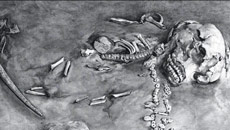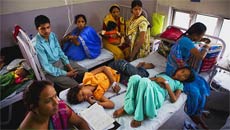In addition to recognising sweet, sour, salty, savory (umami), and bitter tastes, your tongue has a sixth taste sense - the "sense of carbs" - that allows you to perceive carbohydrates -- the nutrients that break down into sugar and form the main source of energy.
The "sense of carbs" also triggers the pleasure centre of the brain and could explain why people often find diet foods unsatisfying, a research shows.
"The mouth is a more capable sensory organ than we currently appreciate, able to distinguish carbohydrates from artificial sweeteners when both taste identical," said Nicholas Gant from University of Auckland in New Zealand.
Carbohydrates are extremely powerful stimuli that have profound and immediate effects on the brain and the systems it controls, Gant added.
For the study, researchers asked participants to squeeze a sensor held between their right index finger and thumb when shown a visual cue.
At the same time, the participants' tongues were rinsed with one of three different fluids.
The first two were artificially sweetened - to identical tastes - but with only one containing carbohydrate. The third, a control, was neither sweet nor carb-loaded.
When the carbohydrate solution was used, the researchers observed a 30 percent increase in activity for the brain areas that control movement and vision.
This reaction, they propose, is caused by our mouths reporting that additional energy in the form of carbohydrates is coming.
"This 'sixth taste sense' for carbohydrate is likely one of many additional food qualities that are detectable by receptors in the mouth," Gant was quoted as saying in media reports.
The study is set to appear in a forthcoming issue of the journal Appetite.





